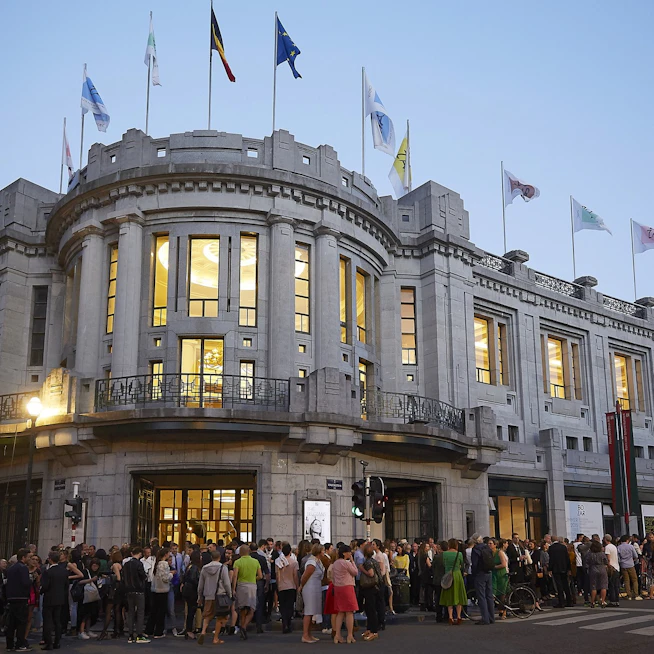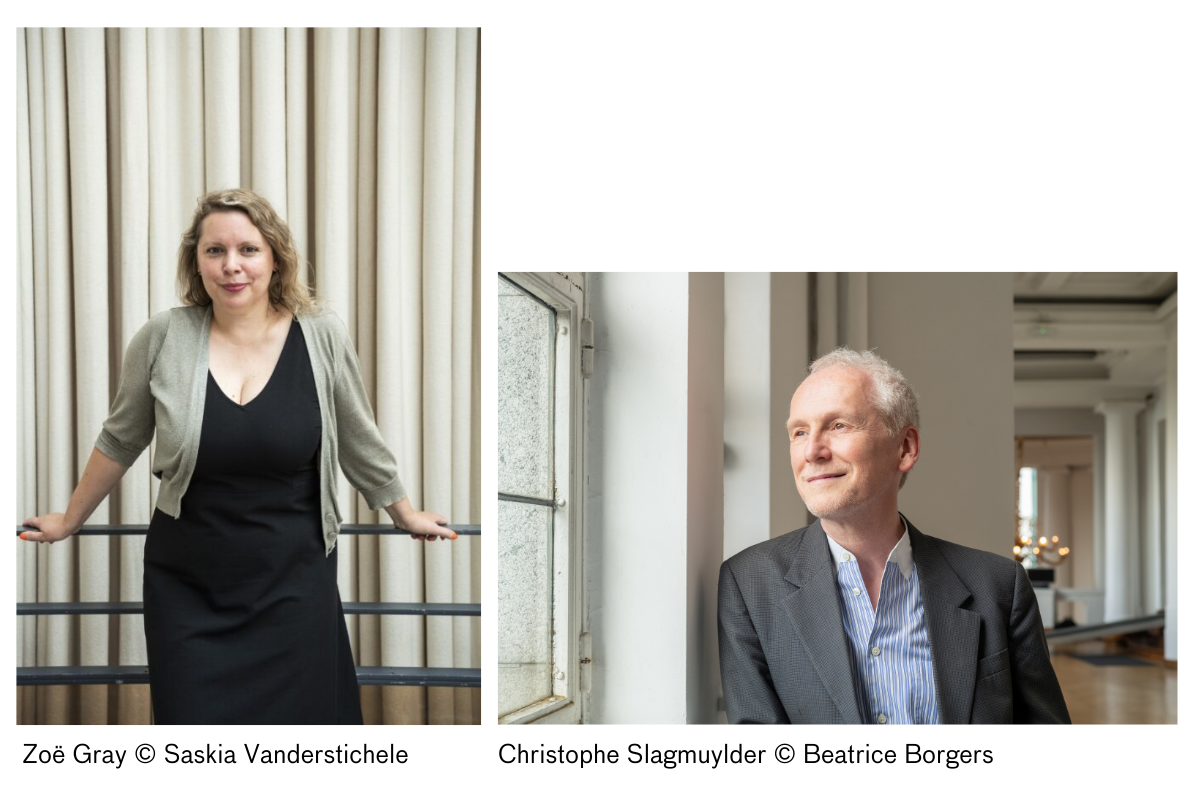Bozar Centre for Fine Arts, Brussels, Belgium

Bozar Centre for Fine Arts has joined CIMAM as Supporter in June 2024.
The Centre for Fine Arts (Bozar) is located in the heart of Brussels in a historic Art Deco building by world-reknown architect Victor Horta. A leading European arts center, BOZAR offers a myriad of artistic and societal events from exhibitions, to music, workshops, cinema screenings or performances. With over 200 European partners, BOZAR leads international artistic initiatives to strengthen European and global connections. Its facilities include large exhibitions spaces, a 2200 seats concert hall, multiple theatres and hybrid spaces.
Bozar collaborates with both renowned and emerging artists and is also a key actor to support the development of artistic programmes of Presidencies of the Council of European Union.
Bozar is committed to inclusivity, sustainability and innovation, notably through its diverse projects, encouraging young people to explore societal issues through art, and engaging elderly populations in intergenerational exchanges.
In the last few years Bozar was able to organize major exhibitions with renowned artists such as David Hockney, Keith Haring, Antonio Tàpies, Picasso, Roger Raveel, and many more.
Interview with Christophe Slagmuylder, CEO and Artistic Director of Bozar and Zoë Gray Director of Exhibitions at Bozar.

Could you explain Bozar's main activities and the projects that help promote the world of culture and art nationally and internationally?
Bozar is an arts house that encourages sparks to ignite between historic and modern heritage. Excellence and experimentation create dynamism, with visual art and music as the key pillars. Film, performances and spoken word programmes further enrich the spectrum.
Since its inception almost 100 years ago, Bozar has been conceived as a transdisciplinary institution, something that marks it as different from most arts spaces in this region. In addition to several ‘circuits’ of exhibition galleries, the building comprises a major concert hall and a variety of spaces in which a rich array of concerts, performances, films and discussions are programmed.
Bozar is a federally-funded, not-for-profit institution without a collection. The exhibition programme is therefore constructed around temporary projects, rather like that of a national ‘kunsthalle’. These exhibitions range in content from ancient to contemporary art. There is a particular focus on artists and art movements who share the paradigm of the instiutions’ existence, rooted in the emergence of Modernism.
What are Bozar's values, mission, and vision, and how are they put into practice or made tangible in the projects or actions working with contemporary artists?
Bozar aspires to be a leading place for the creation and presentation of hybrid artistic projects, a space for mediation and reflection. We create a visionary programme that is conscious of diverse traditions; one that is international but firmly anchored in Brussels.
Bozar strongly believes in the energy and creativity that are released between poles, not in polarisation. We want to further evolve into an open house where everyone feels represented and valued. Our ambition is to systematically become a more diverse and inclusive organisation in terms of the five Ps: the Programme, the Personnel, the Place (hospitality and accessibility), the Public, and the Partners with whom we collaborate. Greater diversity and multiperspectivity are paramount in our programming, as well as in the interplay between diverse repertoires and creations.
How does Bozar engage and work with contemporary artists and thinkers to address and reflect on today's critical social challenges, such as ethical, demographic, democratic, and ecological issues?
Bozar invites contemporary artists to explore these challenges together with us, with the aim that their vision and insight can inform ours and enable us, over time, to improve the functioning and fabric of this large institution.
A recent successful example was the commission made to artist Kapwani Kiwanga to create a new work in the framework of the year of Art Nouveau, an architectual style greatly influenced by the architect of Bozar, Victor Horta. In parallel to a historical exhibition that critically re-evaluated this important Belgian movement in the light of Belgian social and colonial history, Kiwanga created a new carpet piece inspired by the floral patterns of Art Nouveau and the specific histories of certain plants displaced through colonial exchange and exploitation. Kiwanga’s work enabled us to rethink complex historical heritage of our building and has changed the way that we speak about it since.
How does Bozar foresee the world of culture evolving in the near future, and how does it think the collaboration with CIMAM can help Bozar strengthen its contribution to this sector?
Bozar welcomes the world to Brussels and situates Brussels in the world, particularly in the European cultural space. We see wider access to culture for the young as a key challenge, especially based in a city where 40% of the population is under 40.
The long-term development of the world of culture raises crucial questions about the sustainability of cultural practices. Taking into account and developing an awareness of sustainable aspects in every aspect of our daily work is necessary to achieve our ambitions. We need to develop good practices for cultural activities at all levels of scale, inside our institutions, in our ways of welcoming and informing our audiences, in our ways of collaborating with artists. Reducing structural energy costs, paying attention to the issue of international mobility, approaching the future equipment of our venues with a concern for sustainability are just some examples of the many challenges art institutions are facing today.
By becoming a member of CIMAM, we wish to share ideas and experiences with other art institutions worldwide, to learn from others and see how best we can approach these challenges, ideally together.